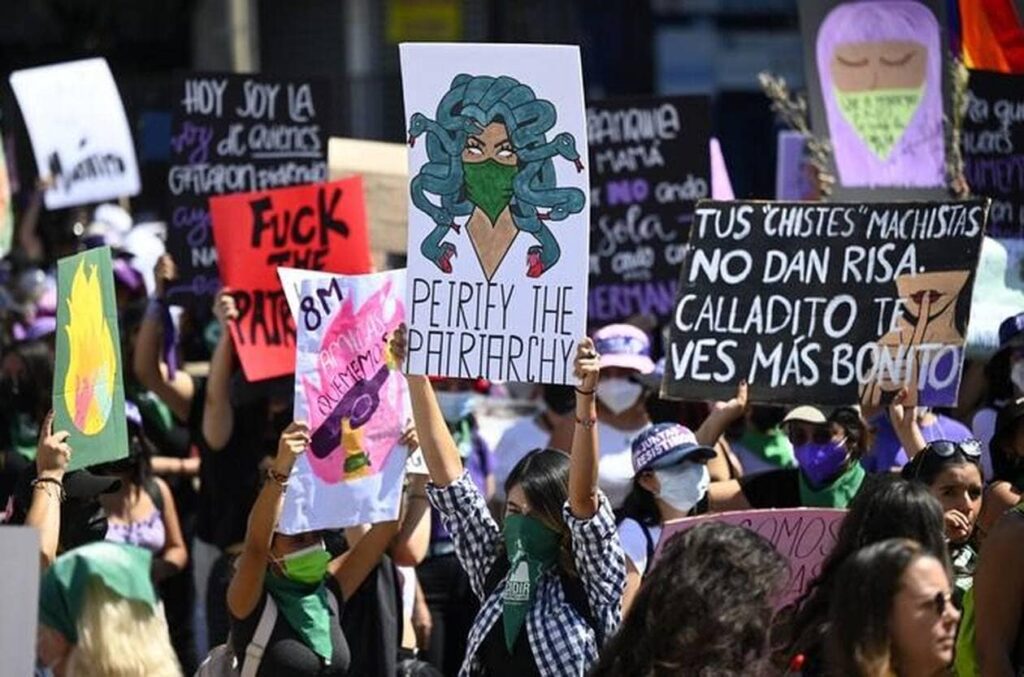Return of the burqa in Afghanistan, access to abortion in the hot seat in the United States, regression of women’s rights in Turkey… Almost everywhere in the world, alarming attacks on women’s freedoms have occurred during the past year. The sentencing to 30 years in prison this week of a woman in El Salvador for a miscarriage is another shocking illustration. Narrative.
Thirty years in prison. This is the shocking sentence that has just been inflicted earlier this week on a woman in El Salvador, named Esme, reveals the British daily The Guardian . Her “crime”: having had a miscarriage. This woman, in pre-trial detention for two years, had gone to a public hospital when she lost her fetus to ask for help and treatment. She was then reported to the police and arrested.
A smoke screen
This type of conviction had not occurred in this Central American country for seven years, indicates for its part The world . A » hard blow « for defenders of women’s rights who saw in the election of young head of state Nayib Bukel in 2019 the hope of a relaxation of legislation in this area. For good reason: during the campaign, he had positioned himself in favor of the decriminalization of voluntary termination of pregnancy (abortion) in the event of danger to the life of the woman.
Find here all our articles on gender equality.
This promise was ultimately only a smokescreen. The withdrawal of the proposal on therapeutic abortion in the reform of the Constitution last year, under pressure from the Catholic Church among others, was the first sign of this. And this condemnation translates a little more this disturbing back-pedaling for the women of El Salvador. It sounds a little more the death knell for decriminalization.
“While progress had been made in the area of the illegal criminalization of women suffering from obstetric emergencies in El Salvador, this condemnation is a devastating step backwards”became indignant in The Guardian Paula Avila-Guillen, Colombian human rights lawyer and director of the Global Center for Women’s Equality.
A draconian law of 1998
El Salvador is one of the few countries (about fifteen in the world) that strictly prohibit abortion, even if the pregnancy presents a risk to the health of the future mother and/or her baby. This draconian legislation was passed in the late 1990s and theoretically abortion is punishable by two to eight years in prison. Except that in fact, justice equates the loss of a baby to an “aggravated homicide”. A sentence that can be punished by 30 to 50 years of imprisonment.
Find our Equality newsletter here.
Over the past 20 years, some 180 women have been jailed for murder for having abortions after suffering obstetric emergencies, according to a local women’s rights collective.
Concern in the United States too
Esme’s story has shocked women’s rights organizations around the world all the more as it comes at a time when the right to abortion is on the hot seat in the United States. The US Supreme Court is considering overturning its landmark Roe v. Wade, which recognizes abortion as a right protected by the US Constitution. A situation that provoked violent demonstrations. “All Americans should have their eyes on El Salvador right now to understand exactly what a future without this shutdown entails”pleaded the Colombian lawyer Paula Avila-Guillen.
Nothing is acquired
If in some countries, even those where Catholic influence remains strong, the situation of women in matters has improved, like Argentina which has authorized abortion up to 14 weeks of pregnancy since the end of 2020, in many states of the world, even the most progressive, it still remains fragile. And the US situation could make things worse. “To see a country as predominant as the United States reconsider this right would have a strong symbolic weight, would give an important dynamic to the anti-abortion movements throughout the world”, has also observed in the media in recent days Andréanne Bissonnette, researcher at the University of Quebec in Montreal.

